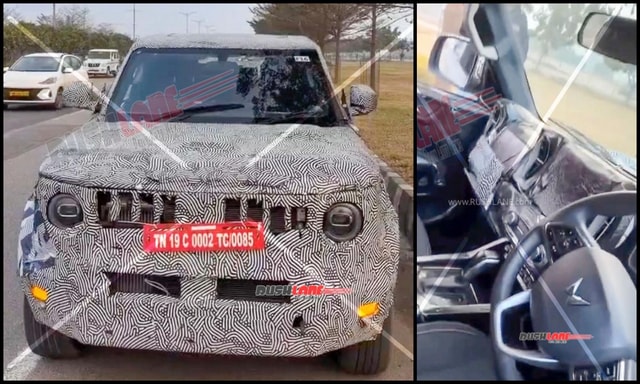Essential Aspects Of A Fuel Cell Car

- Hydrogen fuel cell technology is slowly becoming extremely popular.
- Many companies are developing hydrogen fuel cell technology.
- Customers are also eagerly waiting for mass production of such cars.
Hydrogen fuel cell cars are being heralded as the next big stride forward in transportation, providing the zero-emission movement of electric automobiles with a longer range and faster refueling time. On the other hand, hydrogen fuel cell technology isn't a novel concept. Most of the world's top automakers are now spending heavily on the development of mass-market hydrogen vehicles.

What is a fuel cell car?
Hydrogen fuel cell cars are similar to electric automobiles. Instead of relying on a battery for power, a hydrogen fuel cell car can create energy while running on the road.
The fuel cells inside the hydrogen cell car create energy by combining hydrogen and oxygen, with water as the only byproduct. You may safely consume the water created by hydrogen automobiles, albeit it is not advised for taste.

Advantages Of Hydrogen Fuel Cell Car
- Renewable & Readily Available - Hydrogen is the most plentiful element. Regardless of the difficulties in extracting it from water, it is a particularly abundant and renewable energy source, making it ideal for our eventual 0 combined heat and power demands.
- Hydrogen is clean - Since the only byproducts are heat and water from hydrogen in hydrogen cell cars, hydrogen fuel cells are a naturally clean source of energy with no negative environmental effect during operation. Unlike biodiesel or hydroelectric, hydrogen production does not need much land. By combining renewable energy's irregular supply patterns with difficult end-user demands and avoiding the need for major early expenditure in the power grid, the production of hydrogen, storing, and consumption will play a key role in pushing the continued growth of renewable energy.
- Highly Effective – One of the biggest advantages of hydrogen fuel cell cars is their effectiveness compared to cars that rely on other fuels. Many alternative energy sources, including green energy options, are less efficient than hydrogen fuel cells. This increased fuel efficiency allows more energy to be produced per pound of fuel. A normal combustion-based power plant, for example, generates energy at 30% - 45% percent efficiency, but hydrogen fuel cells may create electricity at up to 65 percent efficiency. The same is true for automobiles, where hydrogen fuel cells consume 40% of the fuel's energy while simultaneously reducing fuel usage by 60%.

- Charging Times – Hydrogen cell fuel cars have incredibly fast charging times. The charging rate for hydrogen fuel cell power units is exceptionally fast, comparable to conventional internal combustion engines, and far faster than that of electric cars. Hydrogen fuel cells can be recharged in under 4-5 minutes, but electric cars take 20 minutes to a few hours to charge.
If you're a buyer in the market, hydrogen vehicles are difficult to suggest at the moment due to a lack of infrastructure to support them. However, the number of hydrogen filling stations worldwide is expected to increase, as will the number of automobile manufacturers introducing fuel cell vehicles shortly. So, if you prefer being on the future side of technology, now could be the time to invest in hydrogen cell fuel cars.
Latest News
- Jaiveer Mehra | Jan 30, 2026Jeep India Confirms ‘First Model of Future Lineup’ To Arrive In 2027: What Could It Be?The SUV maker confirmed its first all-new model for India since 2022.1 min read
 Jaiveer Mehra | Jan 30, 2026New Bentley Continental GT S Debuts As Sportier Alternative To Standard CGTThe GT S shaves the 0-100 kmph time down from 3.7 seconds to 3.5 seconds despite not offering any additional power.1 min read
Jaiveer Mehra | Jan 30, 2026New Bentley Continental GT S Debuts As Sportier Alternative To Standard CGTThe GT S shaves the 0-100 kmph time down from 3.7 seconds to 3.5 seconds despite not offering any additional power.1 min read Jaiveer Mehra | Jan 29, 2026Tesla Model S, Model X Production To End By Mid-2026Company CEO Elon Musk made the announcement during the company’s Q4 2025 earnings call.3 mins read
Jaiveer Mehra | Jan 29, 2026Tesla Model S, Model X Production To End By Mid-2026Company CEO Elon Musk made the announcement during the company’s Q4 2025 earnings call.3 mins read car&bike Team | Jan 29, 2026Mahindra Vision S SUV Interior Spied For The First TimeTest mules of the boxy SUV were initially spotted on public roads in mid 2025, with the concept debuting in August.1 min read
car&bike Team | Jan 29, 2026Mahindra Vision S SUV Interior Spied For The First TimeTest mules of the boxy SUV were initially spotted on public roads in mid 2025, with the concept debuting in August.1 min read car&bike Team | Jan 29, 2026Hyundai Exter Facelift Spied Testing Ahead Of India DebutUpdated Exter is expected to make its debut later in the year as Hyundai will look to better compete with the Punch.1 min read
car&bike Team | Jan 29, 2026Hyundai Exter Facelift Spied Testing Ahead Of India DebutUpdated Exter is expected to make its debut later in the year as Hyundai will look to better compete with the Punch.1 min read Janak Sorap | Jan 29, 20262023 World Superbike Championship-winning Ducati Panigale V4 R: Photo GalleryThis one is not tribute bike or a factory replica, but the very machine ridden by Álvaro Bautista during his record-breaking WorldSBK title in the 2023 season.1 min read
Janak Sorap | Jan 29, 20262023 World Superbike Championship-winning Ducati Panigale V4 R: Photo GalleryThis one is not tribute bike or a factory replica, but the very machine ridden by Álvaro Bautista during his record-breaking WorldSBK title in the 2023 season.1 min read
 Bilal Firfiray | Jan 21, 2026Tata Punch Facelift Review: New Turbo Engine; Same Old SoulWith the update, the Tata Punch facelift retains its character of being a healthy runabout, which is perfect for Indian roads. But have these changes made it any better?7 mins read
Bilal Firfiray | Jan 21, 2026Tata Punch Facelift Review: New Turbo Engine; Same Old SoulWith the update, the Tata Punch facelift retains its character of being a healthy runabout, which is perfect for Indian roads. But have these changes made it any better?7 mins read Amaan Ahmed | Jan 17, 2026Bajaj Chetak C25 First Ride Review: Basic, Likeable E-Scooter For First-Time RidersThe Chetak C25, in quite a few ways, is poles apart from the larger and more powerful 30 and 35 Series models, but in its mannerisms, it is very much a Chetak.8 mins read
Amaan Ahmed | Jan 17, 2026Bajaj Chetak C25 First Ride Review: Basic, Likeable E-Scooter For First-Time RidersThe Chetak C25, in quite a few ways, is poles apart from the larger and more powerful 30 and 35 Series models, but in its mannerisms, it is very much a Chetak.8 mins read Bilal Firfiray | Jan 9, 2026Toyota Urban Cruiser Hyryder: 10,000 km Long-Term ReviewAfter spending over three months and 10,000 km with the Toyota Urban Cruiser Hyryder Hybrid, we were impressed by its real-world mileage, seamless hybrid, practical comfort, and Toyota reliability. Is it the best C-SUV then?5 mins read
Bilal Firfiray | Jan 9, 2026Toyota Urban Cruiser Hyryder: 10,000 km Long-Term ReviewAfter spending over three months and 10,000 km with the Toyota Urban Cruiser Hyryder Hybrid, we were impressed by its real-world mileage, seamless hybrid, practical comfort, and Toyota reliability. Is it the best C-SUV then?5 mins read Seshan Vijayraghvan | Jan 8, 20262026 Mahindra XUV 7XO Review: Big On Tech, Bigger On ComfortThe new Mahindra XUV 7XO is flashier, feature packed, and comes with more advanced tech. But are the changes just incremental or actually substantial?1 min read
Seshan Vijayraghvan | Jan 8, 20262026 Mahindra XUV 7XO Review: Big On Tech, Bigger On ComfortThe new Mahindra XUV 7XO is flashier, feature packed, and comes with more advanced tech. But are the changes just incremental or actually substantial?1 min read Preetam Bora | Jan 10, 2026Simple One Gen 2 First Ride Review: 265 km Claimed Range!The Gen 2 model of Simple Energy’s first electric scooter gets a fair few updates, including new features, tech, more range and lighter weight. We spent a couple of hours with the Simple One Gen 2 to find out if it manages to impress.6 mins read
Preetam Bora | Jan 10, 2026Simple One Gen 2 First Ride Review: 265 km Claimed Range!The Gen 2 model of Simple Energy’s first electric scooter gets a fair few updates, including new features, tech, more range and lighter weight. We spent a couple of hours with the Simple One Gen 2 to find out if it manages to impress.6 mins read


























































































































